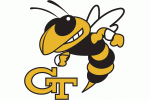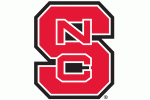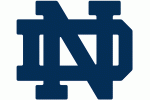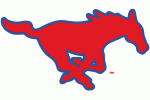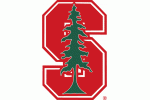Before I get started on all of this, I want to lay some ground rules and parameters that will perhaps prevent the comments from devolving into the arguments that we have had on Blogger So Dear and message boards recently.
First of all, I am not debating whether or not the hiring of Jeff Bzdelik was a good move by Ron Wellman. The statistics and results that we have seen on the court all pretty strongly indicate that his hiring was at best a mediocre move, and most likely a very poor one.
The reason I ask that we not look at the Bzdelik hiring is that I know that many people have taken a strong stance against Ron Wellman and his decision to fire Dino Gaudio and then hire Jeff Bzdelik. These are two separate moves and I would like to view them as such for this article. We all know what has transpired at Wake Forest and most of us are not pleased with it.
Basically, the question that I want to examine is whether or not the culture and direction of Wake Forest basketball was in a place (or headed to a place) that needed to be drastically fixed to maintain the integrity, academically and from a character standpoint, that alumni and fans of Wake Forest expect to see. Primarily, this would lead to the question of whether or not it was to the point that Dino Gaudio needed to be fired in order to fix it moving forward.
I do not have an answer to this and do not attempt to persuade anybody in this article to a particular conclusion. Think of this as an open-ended discussion of the basketball situation at Wake Forest for the readers of BSD!
At the press conference that announced the departure of Dino Gaudio, Ron Wellman stated that it was the demise of the basketball team in the latter stages of the year and the postseason that led to the removal of Gaudio as the head coach of Wake Forest. While this was the stated reason, all that has come out of the athletic department since then has been about "winning with integrity" and "culture change".
It is not hard to read between the lines and assume that the primary reason behind this firing was the type of players who were being brought to Wake Forest.
As we can see with the following APR scores, Wake Forest was dropping quickly in this system that started in 2005:
2004-2005: 978 (2001-2005)
2005-2006: 986 (2002-2006)
2006-2007: 974 (2003-2007)
2007-2008: 963 (2004-2008)
2008-2009: 959 (2005-2009)
2009-2010: 953 (2006-2010)
2010-2011: 939 (2007-2011)
2011-2012: 942 (2008-2012)
A quick refresher from the article yesterday that I wrote that indicates what the APR is and when a team is punished is below:
The Academic Progress Rate (APR) is a term-by-term measure of eligibility and retention for Division I student-athletes that was developed as an early indicator of eventual graduation rates.
Each student-athlete receiving athletically related financial aid earns one retention point for staying in school and one eligibility point for being academically eligible. A team’s total points are divided by the points possible and then multiplied by one thousand to equal the team’s Academic Progress Rate score. Example: A Division I Football Bowl Subdivision team awards the full complement of 85 grants-in-aid. If 80 student-athletes remain in school and academically eligible, three remain in school but are academically ineligible and two drop out academically ineligible, the team earns 163 of 170 possible points for that term. Divide 163 by 170 and multiply by 1,000 to determine that the team’s Academic Progress Rate for that term is 959.
The NCAA calculates the rate as a rolling, four-year figure that takes into account all the points student-athletes could earn for remaining in school and academically eligible during that period. Teams that do not earn an Academic Progress Rate above specific benchmarks face penalties ranging from scholarship reductions to more severe sanctions like restrictions on scholarships and practice time.
While there are a few different reasons that could be attributed to the decline in APR scores, primarily early departures to the NBA and transfers (as well as coaching changes), in order for somebody to count against a school, these players either had to drop out of school or be in poor academic standing with the school when they left.
This requires a lot of assumptions to get to where an individual student can be pointed out unless if they got their release from the school/withdrew from school (as Melvin Tabb did in February of 2011). Even in the case of Tabb, it is difficult to tell whether he was in poor academic standing when he missed games in the fall of 2010, resulting in a loss of points for the fall semester as far as APR scores go, or if Wake Forest was only hurt in the spring semester when he withdrew.
Ideally, I move away from blaming individuals and calling out names here, but rather look at the overall systematic approach to bringing student-athletes in that have character or academic issues once they get here. It is a very fine rope to walk with borderline academic players in high school, especially at a school that is as academically rigorous as Wake Forest. I do not envy coaches that turn down student-athletes, especially those who are in the top 50 in ESPN's basketball recruits.
We do, however, expect the student-athletes at Wake Forest to be able to compete in the classroom and on the basketball court in order to represent and maintain the reputation of our school.
Is this a elitist? I do not think so at all. Wake Forest has always been touted as a place that has Elon and Davidson-like academics, but with athletics that compete nationally in the ACC. That is what sets Wake Forest apart and why many current students and alumni chose to attend.
The APR is not a flawless system by any means in determining how a school is doing academically. Take for example a student who makes straight A's in high school, is a top 20 recruit, and has never had any character problems that makes a once in a lifetime mistake and drives drunk, resulting in a suspension from the team and a withdrawal from that student from the university in the middle of the basketball season.
This example hurts the school because it counts against them in the APR. The school did nothing wrong in this case, bringing in an exemplary student-athlete that made a mistake that cost both parties dearly. The school is still punished though.
Another example could be a student-athlete who becomes so homesick during their first semester in their freshman season that they withdraw from school. This also hurts a school even though nobody is really hurt in this situation.
On a basketball team there are 13 scholarship players, and one player in a year who withdraws has a bigger impact than one would on a football team (comprised of 85 scholarships).
Let's be honest though, these cases do not make up the majority of the cases that make the APR score what it is. The NCAA also has a review system in place that retroactively "fixes" these instances so the school is not hurt. The scores that Wake Forest have been putting up recently have indicated an average of 2 or 3 players per year who either withdraw from school or are not in good academic standing when transferring or going professional.
This is something that is unacceptable and should be addressed in my opinion. The last two scores of 939 and 942, while released over the past two years while Jeff Bzdelik has been the head coach, represented the athletes that left under Dino Gaudio, as well as Bzdelik. Also, we have not yet seen the scores from the players who Bzdelik recruited and transferred from Wake Forest.
This is not meant at all to be a defense of Bzdelik, as how he has recruited will come out in the following years. What it does indicate to me, however, is that Skip Prosser and Dino Gaudio were making a habit of recruiting players that either transferred, went professional, or especially as of late, had run-ins with the law/campus authorities.
Let me take the space now to state that I have absolutely no problem with players who are good enough to go to the NBA doing so. Nor do I have problems with players transferring who either do not mesh well with the coach/team or feel like they can get better playing time at a different institution. As long as they are in good academic standing and continue to attend classes until it is time to transfer or go pro I do not have a problem at all.
It is often times difficult to determine whether or not players who go pro leave the school in good standing. I have absolutely no idea if James Johnson, Al-Farouq Aminu and Jeff Teague left Wake Forest to go to the NBA because they were given good prospects by scouts, or whether they left because they could not return to Wake Forest because of bad grades. I think that at least 66% of these guys went based on their draft prospects, and could have returned to Wake Forest if they wanted. Or in other words, were in good academic standing. I do not know for sure though.
Same goes for the transfers of Anthony Gurley, Jamie Skeen, Cameron Stanley, Ari Stewart, Konner Tucker, J.T. Terrell, Ari Stewart, Tony Woods, Chase Fischer, Carson Desrosiers, Anthony Fields, Tony Chennault, or Chase Fischer.
What I will say, which you could probably guess by my listing out those names, is that there have been A LOT of transfers over the past 8 years at Wake Forest. We know the reasons behind some of the those transfers, or at least like to think that we do. Others we do not have any idea other than to take their reason for leaving at face value.
There is of course room to speculate that the coaching change from Prosser to Gaudio, and then from Gaudio to Bzdelik, is responsible for a reasonable number of the transfers. Perhaps it has just been the perfect storm between elite talent, coaching changes, on occasional "knucklehead" or two (as Coach Grobe would say), and the era of instant gratification, where kids that don't get PT or results right away want to go somewhere else.
I do not write this article in an attempt to libel or belittle the coaching jobs by Prosser, Gaudio or Bzdelik (there are other articles for the latter), but rather an effort to try to figure out, along with the commenters that will respond, as to whether or not a change in directions was necessary to get Wake Forest back to the place where it should be academically and consequently athletically.
We need to look no further than the top of our own conference at the Duke Blue Devils (I know, disgusting), as a team that has succeeded in both realms. It may not be feasible to replicate the job that Mike Kryzewski has done in Durham, but I do not fault anybody that is using that school as an ideal way to win on and off of the court.
I ask that we put aside our personal feeling for the current head coach and AD just for this article, and honestly take a look at what has caused so many departures from our basketball program over the past 8+ years.
Is it the perfect storm of circumstances? Were we on a path that we as fans/alumni do not want to be on in terms of the players we were bringing in? Is it a combination of both? Do I like asking rhetorical questions in my articles?
Maybe this will provide us with an answer and maybe it will not, but looking at it through a different view and maybe playing a bit of Devil's Advocate will allow us to take a "rounder" look at the entire situation at hand and understand it better.







